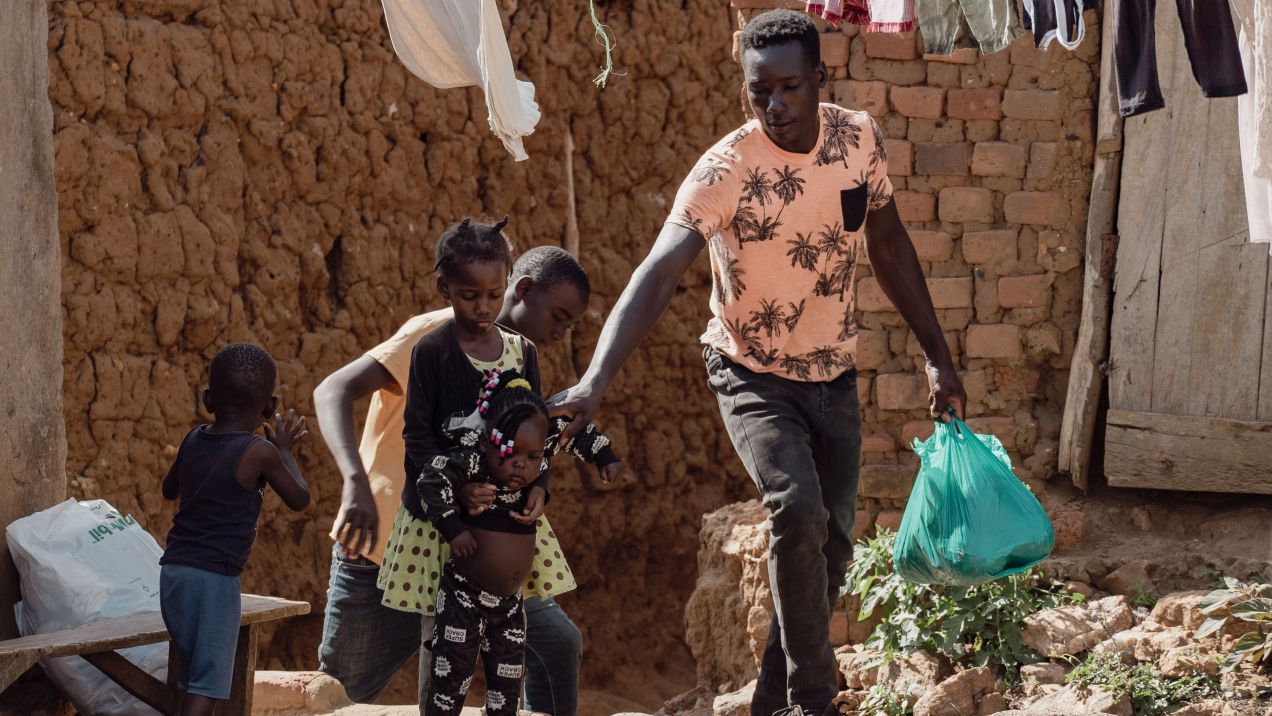[28 March 2013] -- Cities Alliance members and partners have taken an important step toward renewed collective engagement in Africa, opening up a constructive dialogue that sets the stage for a new strategy to guide the partnership’s approach in the region.
The need for such a strategy is clear. While African governments have tended to focus their development on rural areas, Africa’s cities are growing at the staggering rate of 4.5 percent—the fastest in the world. Adding to the urgency of the situation is the fact that much of this growth is taking place in small and secondary cities, where existing backlogs and capacity constraints are the most severe. Without a coherent, realistic and holistic approach, the urbanisation process in Africa is likely to be chaotic, unplanned and inefficient.
Within this context, Cities Alliance members have proposed developing and implementing an Action Plan to raise the profile of key urban challenges in Africa and help provide more coherent, strategic support to city and national governments in their efforts to towards more inclusive cities. German Cooperation provided seed money to kickstart the process.
The African members of the partnership—the Governments of Ethiopia, Nigeria, South Africa, as well as United Cities and Local Governments of Africa (UCLGA) and Shack/Slum Dwellers International (SDI)—will be instrumental to this process. Cities Alliance Country Programme partners in Uganda, Mozambique, Burkina Faso and Ghana are also expected to play a key role.
To open the debate, the Cities Alliance convened a wide range of development actors in Addis Ababa 20-22 March 2013 for an initial discussion of urban development priorities in Africa. Facilitated by the Cities Alliance Secretariat, the meeting brought together a range of development players to exchange ideas and debate key issues. More than 40 representatives of Cities Alliance members and partners participated, including national and local governments, city officials, civil society, academia and international organisations.
Prior to the meeting, the Cities Alliance Secretariat conducted a survey for participants to lay the groundwork for a discussion of their priorities in Africa as well as their expectations of the partnership in the region. The lively debate highlighted participants’ strong commitment to the process, with all actors showing a real willingness to understand each other and recognise their respective roles in managing urban development.
Ethiopia's commitment was particularly notable. The Ethiopian Minister of Construction and Urban Development, the Hon. Mekuria Haile, not only addressed the gathering, but stayed an extra hour to answer questions from all types of participants—a rare opportunity for direct dialogue with an important national policy maker.
Participants also recognised that they could advance the global agenda on reducing urban poverty more effectively by working together, and that the Cities Alliance offers a unique and relevant platform for such cooperation. Several main points emerged surrounding the strategy:
-- The Cities Alliance should not try to reinvent the wheel, but rather build a constituency around members’ current activities targeting the urban poor and bring everyone on board.
-- Building the capacity of local governments to manage their cities, helping them to plan for urbanisation, and improving their access to resources are crucial components.
-- It should also highlight the role of national governments in providing a framework for urban development and creating the conditions for communities and municipalities to take effective action at the city level.
Moving forward, participants agreed that the Cities Alliance Secretariat should develop a framework for the Action Plan. Members and partners would then meet again to flesh out the plan with concrete activities.
African Urban Research Initiative
Some of the most dynamic discussions in Addis centred around the African Urban Research Initiative, which seeks to ensure that analytical and applied research currently underway adequately reflects key urban priorities. Supported by the Cities Alliance and the Rockefeller Foundation, the initiative is being implemented by the African Centre for Cities (ACC).
Representatives from 16 urban research centres across Africa came together to discuss the main issues that research centres are working on, and whether that work reflects the current challenges. Members and partners of the Cities Alliance fully participated in the debate, creating a rare opportunity for these actors to exchange views on the current urban transition in Africa. Language was not a barrier; some of the sessions were held in French, a clear—and much appreciated—effort to bring together both Anglophone and Francophone Africa and not split them by language as is often the case.
The debate revealed that these actors fundamentally shared the same views on the challenges, and that they could benefit from closer consultation and sustained dialogue. Participants agreed to build a formal network of research centres in Africa to help ensure that research conducted is relevant to current challenges, and to improve knowledge sharing among centres.
The ACC was tasked with setting up a steering committee for the new network as well as devising a roadmap for the coming year. One of the network’s first activities will be to conduct a peer review for the City Enabling Environment (CEE) ratings system, an initiative sponsored by the Cities Alliance and piloted by UCLGA that aims to advance the agenda of effective, concrete decentralisation in Africa.
|
Participating Organisations The following organisations took part in the strategy discussions in Addis: |
|
|
African Development Bank AUSAid Brazil (National Housing Secretariat, Ministry of Cities) Burkina Faso (Ministry of Housing and Urban Planning) The Cities Alliance (Secretariat) Ethiopia (Ministry of Urban Development and Construction) Ethiopia (Civil Service University) Ethiopian Cities Association French Cooperation (Ministry of Foreign Affairs, AfD) German Cooperation (GIZ) Ghana (Ministry of Local Government and Rural Development) Global Fund for Cities Development (FMDV) Metropolis Netherlands (CORDAID) |
Nigeria (African Policy Institute) Shack/Slum Dwellers International Shelter Afrique South Africa (Department of Human Settlements) South Africa (African Centre for Cities) United Cities and Local Governments United Cities and Local Governments Africa Uganda (Ministry of Land, Housing and Urban Development) United Kingdom (Department for International Development) United Kingdom (The Ecological Sequestration Trust) UNEP UN-Habitat The World Bank The World Bank Institute
|
With its broad membership, the Cities Alliance is able to convene a uniquely diverse gathering of development actors who otherwise would not have the opportunity to interact.
Related Items
Member and Partner Survey: Towards an Action Plan for African Cities
Portfolio of the Cities Alliance in Sub-Saharan Africa: An Empirical Reflection
African Urban Research Initiative Workshop Proceedings
The Cities Alliance in Ethiopia: A Decade of Strategic City Planning




